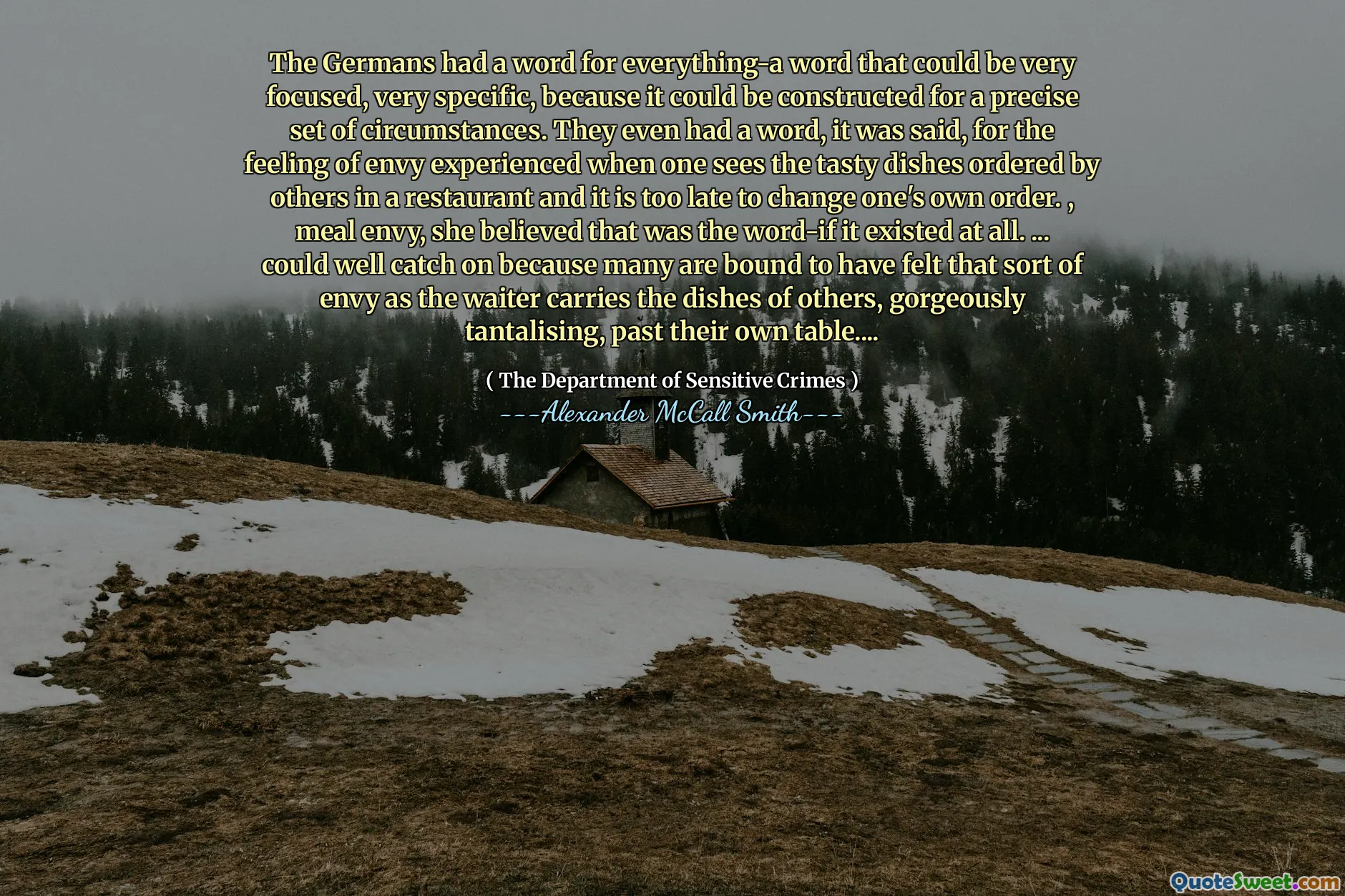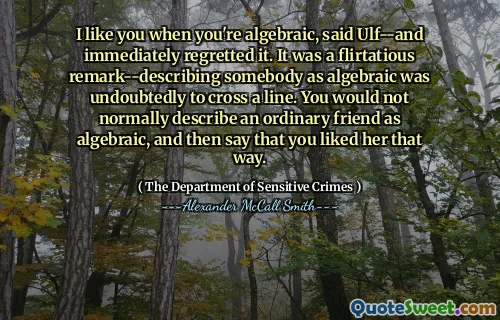
The Germans had a word for everything-a word that could be very focused, very specific, because it could be constructed for a precise set of circumstances. They even had a word, it was said, for the feeling of envy experienced when one sees the tasty dishes ordered by others in a restaurant and it is too late to change one's own order. , meal envy, she believed that was the word-if it existed at all. ... could well catch on because many are bound to have felt that sort of envy as the waiter carries the dishes of others, gorgeously tantalising, past their own table....
The narrative highlights the unique German language's ability to convey specific emotions and situations through its vocabulary. One poignant example discussed is the concept of 'meal envy,' which captures the feeling of jealousy experienced when someone sees the delicious meals ordered by others, realizing it's too late to modify their own choice. This notion resonates with many people, as the scenario of watching mouthwatering dishes being served nearby is a common experience, infused with such complex emotions.
The author, Alexander McCall Smith, underscores how this specific language facet enriches our understanding of human experiences. The idea that there may be a fitting term for a widely felt emotion adds a layer of depth to the narrative. It encourages readers to reflect on their own encounters with 'meal envy' and similar feelings, fostering a connection with the trials of enjoying a meal while wishing to savor something else.








